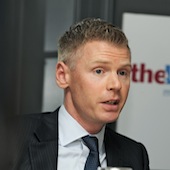Rethinking How Economies Work
Europe can build better economies and societies. Progress is possible. But how?
January 31, 2015

While many excellent economists have shed light on a wide variety of subjects, we still have only a sketchy grasp of how economies work – and what passes for economic “science” is often bunk.
Fortunately, technological progress doesn’t depend on our economic understanding of why it occurs – although it can be stunted by bad policies.
Political economy – as it was then called – emerged in the eighteenth century, when the Scottish philosopher Adam Smith pursued “an inquiry into the nature and causes of the wealth of nations.”
His key insight – that competition between selfish profit-seeking producers tends to advance the common good – is profound and often true. At the time, political economy was descriptive, analytical and firmly anchored in a political and social context.
In the nineteenth century, it was rebadged as the science of economics, akin to a branch of mechanical engineering. In keeping with the science of the time, economies were thought of as gigantic, self-equilibrating machines.
A runaway economy
Increasingly, economics ran away with itself. Instead of trying to describe the world as it is, with the economy as a form of human interaction, it imagined a mathematical ideal detached from its social, political and historical context.
Assumptions that were not approximately right but completely wrong became doctrine: that people have known, stable, independent and well-ordered preferences; that based on those preferences, they “maximize” rather than operate by rules of thumb and make do.
That they know how the economy works and have “rational expectations” about what the future holds, which conforms to a known probability distribution; and that as a result, markets (not least financial ones) are “efficient” and tend towards equilibrium.
On the basis of these false assumptions, economists created a fantasy world – that’s fine, lots of people love Harry Potter – and then proceeded to give advice as if the real world was like their fantasy. And people believed them. Which is bonkers.
Simplifying (false) assumptions allowed macroeconomists to model economies as if they consisted of an all-seeing, all-knowing single representative agent rather than as the complex interaction between many types of agent; to abstract from the financial system altogether, and to ignore the role of particular institutions.
As a result, mainstream economics has very little to say about how new ideas come about and how they are deployed across the economy – which is a pity considering they are the two main drivers of growth in advanced economies.
No place for innovation?
Because it has no coherent account of innovation, mainstream economics often misses the point. Immigrants are seen as generic drones who fit into vacancies in the labor market, rather than diverse sparks of new ideas.
Free trade purportedly delivers a tiny one-off gain instead of being a stimulus for competitive improvement. Entrepreneurs don’t exist. Likewise, mainstream macroeconomics has no coherent account of how the financial sector interacts with the economy.
Standard models ignore it altogether; newer ones tack it on in an ad hoc way. Milton Friedman, a famous American economist, once countered that theories should be judged by their ability to predict events rather than by the realism of their assumptions.
On that basis, orthodox economics is a flop. Physics is a wonderful science that told us how to send a man to the moon. Economics pretending to be physics is a disaster that led to the crash.
The notion that economies are stable and predictable and tend towards a steady state – in effect, a linear forward projection of equilibrium over time – is nonsense.
Economies are complex things
Ironically, this neo-classical theory is often advanced by free-marketeers who don’t understand its implications. If this really was an accurate description of how an economy works, a central planner could do the job just as well as the market system.
I don’t pretend to know how economies precisely work. I don’t think anyone does. That’s the point.
Economies are in fact complex systems that are forever changing in often unpredictable and non-linear ways as a result of the interaction between different economic agents with a limited grasp of how the economy works and little idea of what the future holds.
Editor’s note: The above text is adapted from European Spring: Why Our Economies and Politics are in a Mess – and How to Put Them Right by Philippe Legrain, CB Creative Books (April 24, 2014)
Takeaways
Technological progress doesn’t depend on our economic understanding of why it occurs.
Mainstream economics has very little to say about how new ideas come about.
Economics pretending to be physics is a disaster that led to the crash.
Economies are complex systems that are forever changing in often unpredictable and non-linear ways.

